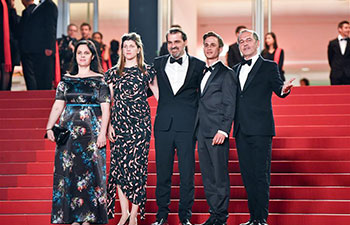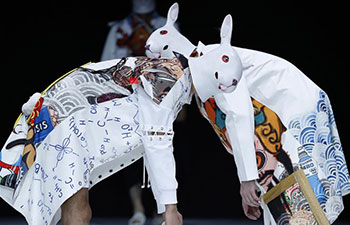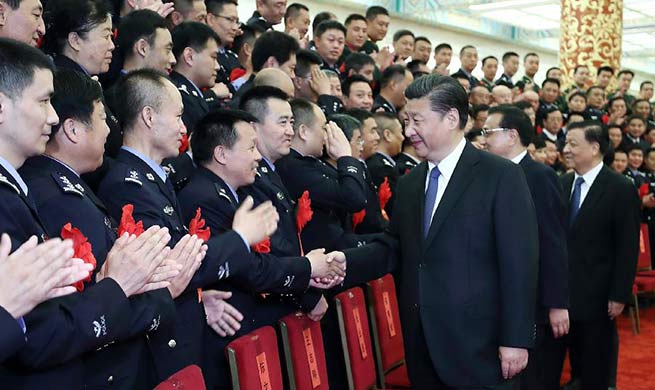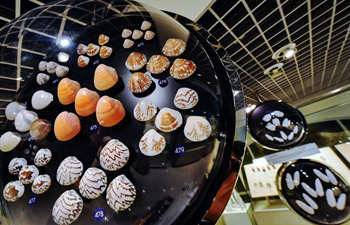LISBON, May 19 (Xinhua) -- Portuguese Fado leading singer Misia moved a full auditorium on Friday night with her tribute to the poets who marked her career over the past 25 years.
"I am here to show gratitude to the poets and writers who marked my work but also the person I am today," she said on stage before performing "Misia and Her Poets" at Lisbon's Belem Cultural Center.
She performed her traditional fado repertoire with poems written by some of the country's most prestigious contemporary poets and writers.
"The fact that they wrote for my voice and for my music defines my work," she told Xinhua before the concert in a telephone interview.
Brazilian singer and composer Adriana Calcanhotto appeared towards the end of the night with her melodic voice and guitar filling the auditorium. "I dedicate this to Misia who taught me to love fado," she said.
Fado, a Portuguese musical style known as the soul of Portugal, is usually sung by a single person and accompanied by a classical guitar and a Portuguese guitar. It was added to UNESCO's list of Cultural and Intangible Heritage of Humanity in 2011.
Misia, who grew up in Porto, Northern Portugal, used to sing at Fado houses as an amateur in her adolescence. She moved to Barcelona at the age of 20, and began her career after returning to Portugal in 1991 at a time when Fado was not as popular as it is today.
Inspired by the great Fado singer Amalia and with the desire to follow her own path, Misia contacted numerous poets, composers, singers, writers, photographers and designers and asked them to engage in her music. Since then she has built a unique fado repertoire, which has been referred to as "Novo Fado" (new fado).
Misia's style is rooted in the traditional fado style but she incorporates instruments inspired from her childhood like the accordion and the violin, as well as the traditional guitar trio.
Her music has taken her to countries around the world including Spain, Japan, Germany, China and South Korea.
"Fado influenced me since childhood and throughout my adolescence, and the biggest influence was Amalia, but also French music, Brazilian music, and classical music," she told Xinhua.
"I have been travelling for 25 years, so it is impossible not to be a sponge and soak up all these influences, and to be sensitive, to reciprocate," she explained.
Misia also points out that her work is not a fusion of influences and it has never been her intention to renovate the genre.
"I perform fado with contemporary arrangements, but I never told myself that I would renovate fado, I just did what I felt. And I have a lot of respect for traditional fado."
One thing that Misia is actively focused on changing is men's dominance in Fado, so in her album Senhor da Noite, she presented 13 fados written by 13 women.
Misia was never constrained by a single music style or genre. She has instead participated in several projects apart from fado music, including with the baroque Mediterranean group Arpeggiata.
Misia has won numerous awards including the Vermeil Medal, the highest honor of the city of Paris.

















